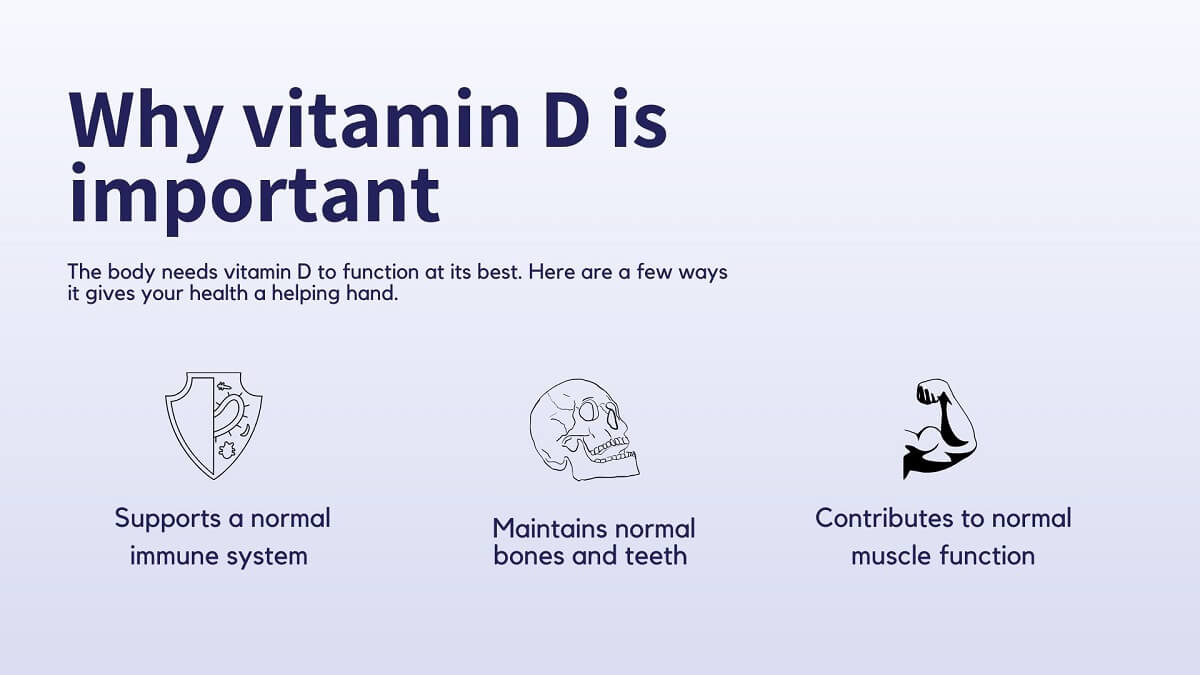Vitamin D for a stronger you
Imagine a nutrient so vital that it influences everything from your bone health to your immune system, and even your mood. That’s Vitamin D for you! Often known as the ‘sunshine vitamin’, it’s a superstar in the world of wellness. But here’s a shocker – despite Malaysia’s abundant sunshine all year long, a significant number of Malaysians are not getting enough of it. Let’s unravel the mystery of this essential nutrient.
The Mighty Role of Vitamin D
Vitamin D is a bit of a show-off! It’s not just a vitamin, but also a hormone that our bodies can produce when our skin basks in the sunlight. It’s a key player in maintaining the calcium and phosphate levels in our body, ensuring our bones stay strong and our muscles function smoothly. But that’s not all! Vitamin D is also a guardian of our immune system, helping to keep harmful bacteria and viruses at bay.
The Dark Side: Vitamin D Deficiency and Insufficiency
When the sun doesn’t shine in our bodies, things can get a bit gloomy. Vitamin D deficiency occurs when the concentration of 25-hydroxyvitamin D, the main form of vitamin D in the blood, falls below 30 nmol/L. Insufficiency is when the concentration is between 30-50 nmol/L.
When vitamin D levels are insufficient or deficient, the body may struggle to maintain adequate calcium and phosphate levels, leading to a variety of health problems. These include weakened bones (osteoporosis), muscle weakness, and an increased risk of fractures. Recent research also suggests that low Vitamin D levels could be linked to chronic diseases such as cardiovascular disease, diabetes, and certain types of cancer.
Severe vitamin D deficiency can also lead to other diseases. In children, it can cause rickets, which is a rare disease that causes the bones to become soft and bend. In adults, severe vitamin D deficiency leads to osteomalacia, which makes your bones hurt and weak.

The Malaysian Scenario
Despite being a sun-kissed country, more than half of Malaysians have insufficient Vitamin D levels. The urban dwellers, females, and Malays and Malaysian Indians are more prone to this insufficiency. But don’t worry, we have guidelines to tackle this!
The Daily Dose
The recommended daily intake of Vitamin D varies by age, but for most adults, it’s around 600 to 800 International Units (IU) per day. However, certain groups may need more, so it’s always best to consult with a healthcare provider. These groups include:
1. Older adults: As you age, your skin’s ability to produce vitamin D decreases.
2. People with limited sun exposure: If you’re homebound, live in northern latitudes, wear long robes or head coverings for religious reasons, or have an occupation that prevents sun exposure you may not get enough Vitamin D from sunlight.
3. People with dark skin: Higher levels of melanin in the skin reduce the skin’s ability to produce vitamin D from sunlight.
4. People with certain conditions: Certain conditions such as Crohn’s disease, celiac disease, and cystic fibrosis can affect your intestine’s ability to absorb vitamin D from the food you eat.
5. Obese people: Vitamin D is extracted from the blood by fat cells, altering its release into the circulation. People with a body mass index of 30 or greater often have low blood levels of vitamin D.
Boosting Your Vitamin D Levels
So, how do you ensure you’re getting enough of this sunshine vitamin? Here are some tips:
1. Soak up the Sun: Safe sun exposure is the most natural way to get Vitamin D. Aim for short periods of sun exposure daily, but don’t forget your sunscreen!
2. Eat Vitamin D-rich Foods: Fatty fish like salmon and mackerel, fish liver oils, and egg yolks are great sources. Certain mushrooms and fortified foods like milk and cereals also contain Vitamin D.
3. Consider Supplements: If you’re at risk of Vitamin D deficiency, your healthcare provider may recommend supplements. It’s an easy and effective way to ensure you’re getting enough. A 1000iu tablet daily is usually sufficient but in special cases such as osteoperosis, a 25000iu tablet may be indicated.
How Do You Know?
Testing for low Vitamin D is typically done through a blood test that measures the level of 25-hydroxyvitamin D in your blood. This is the most accurate way to measure how much vitamin D is in your body.
Conclusion
The high prevalence of Vitamin D insufficiency among Malaysians is a wake-up call for us to pay attention to this vital nutrient. At Hisential, we’re committed to raising awareness about the importance of maintaining adequate Vitamin D levels for overall health and well-being. Remember, every ray of sunshine counts!
What our customers are saying about us
Book Your Appointment With Hisential Today
Submit an Enquiry
Hisential Bangsar Clinic
Open in Google Maps
Whatsapp: +60 12-841 3969 | Call: +60 3-8603 7220
Hisential Bangsar Sdn. Bhd (1460965-H)
KKLIU 0640/EXP 31.12.2026




